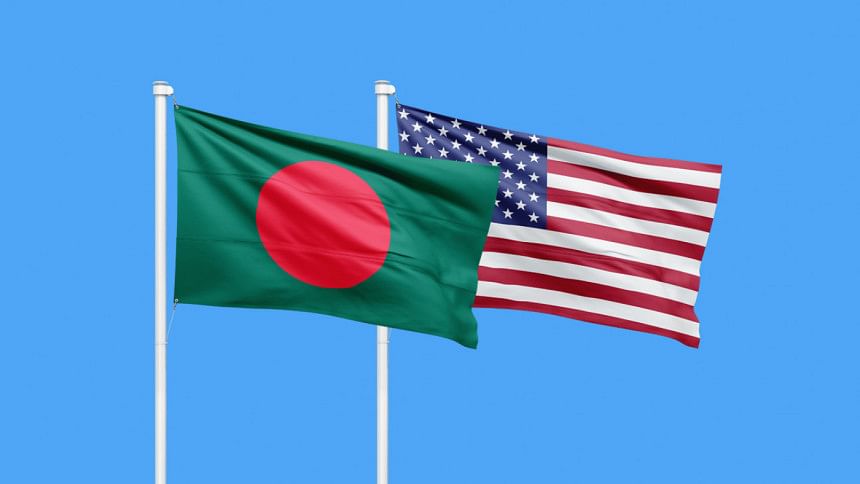Dhaka claims ‘good progress’ in US tariff talks

Bangladesh has made "good progress" in consultations with US officials, with both sides working "seriously" to finalise a reciprocal tariff agreement swiftly, according to a statement from the Chief Adviser's Office yesterday.
The government has already submitted its comments on the draft deal ahead of a high-level meeting between Bangladesh and the US Trade Representative, scheduled for July 3 in Washington.
"We have given our opinions on the draft reciprocal tariff agreement twice, including the latest one today [yesterday]," Commerce Secretary Mahbubur Rahman told this newspaper over the phone.
He declined to share details, citing a non-disclosure agreement (NDA) signed by both governments last week.
Commerce Adviser Sk Bashir Uddin is expected to attend the upcoming meeting, joined by National Security Adviser Khalilur Rahman, who is already in Washington for negotiations, said the commerce secretary.
The talks come as a 90-day pause on the tariff, announced by the Trump administration in April this year, is set to expire on July 8.
The Chief Adviser's Office said the latest round of discussions took place on Thursday, with Khalilur Rahman leading the Bangladeshi delegation and US Assistant Trade Representative Brendan Lynch representing the American side.
"We made very good progress during our consultations with the US team. Both sides are making serious efforts to finalise the agreement expeditiously," said Rahman, a former trade policy chief at the UN Conference on Trade and Development (UNCTAD), according to the statement.
Officials familiar with the negotiations said Bangladesh is seeking to maintain the existing 16 percent tariff along with the 10 percent baseline duty introduced in April this year, bringing the total to 26 percent.
This position is being framed as a counterproposal to the proposed 37 percent reciprocal tariff on Bangladeshi exports.
Dhaka is also expected to request an extension of the current pause on the tariff's implementation by a further three months.
Separately, the Bangladesh Garment Manufacturers and Exporters Association (BGMEA) proposed a 10 percent tariff and a three-month extension during a meeting with Tracey Ann Jacobson, the chargé d'affaires at the US Embassy in Dhaka, on June 24.
A businessman who attended that meeting said the 10 percent baseline tariff could remain in effect during the extended pause.
He added that if Washington insists on a reciprocal tariff, Bangladesh would prefer it to be capped at 10 percent instead of the proposed 37 percent, given that the country already faces a 16 percent duty on its exports to the US.
If the full 37 percent tariff is implemented, the total duty on Bangladeshi goods could rise to 52 percent.
At present, Bangladeshi exporters face a 26 percent tariff on shipments to the US, following the imposition of the additional 10 percent baseline duty on April 8.

 For all latest news, follow The Daily Star's Google News channel.
For all latest news, follow The Daily Star's Google News channel. 



Comments